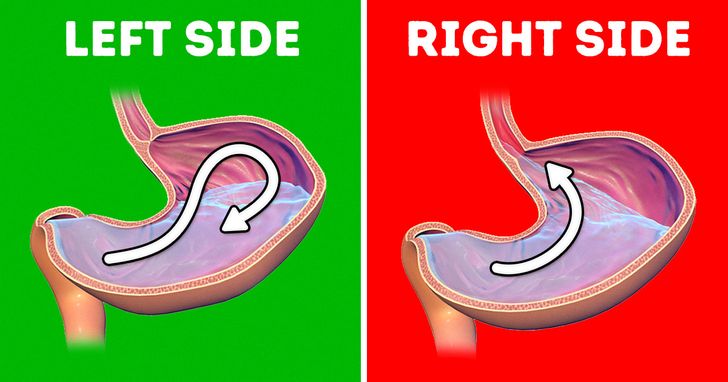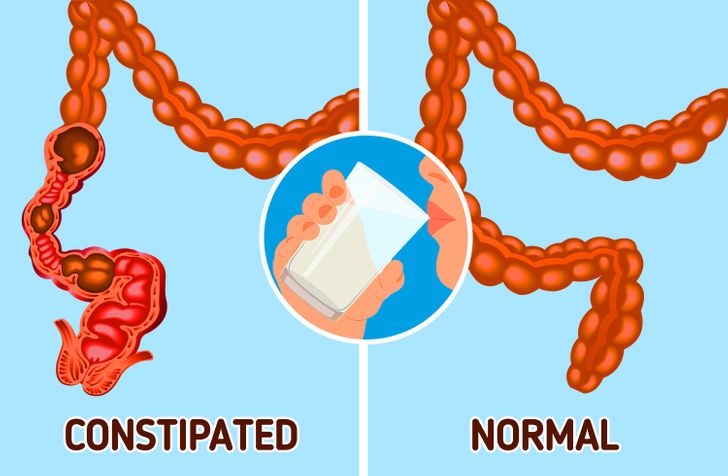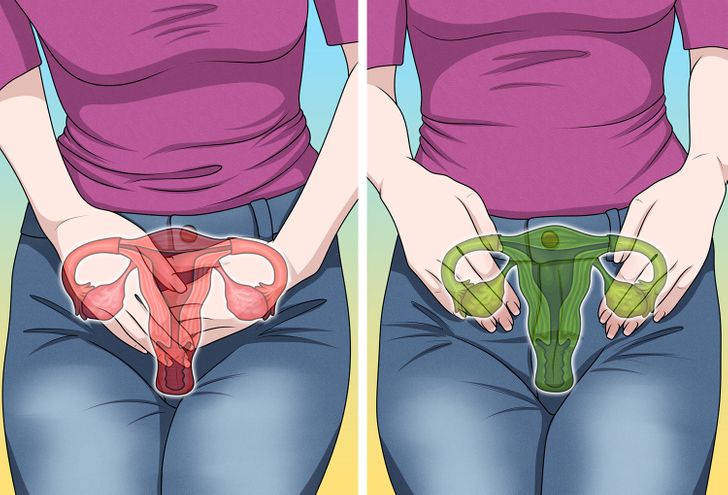A healthy digestive system is the cornerstone of overall well-being. When your gut functions optimally, your body absorbs nutrients more effectively, energy levels soar, and even your mood improves. In today’s fast-paced world, digestive issues are common, and many people are on the lookout for natural ways to enhance gut health. This comprehensive guide reveals six powerful methods that can help make your digestive system run smoothly.
By integrating high-ranking keywords like “digestive health,” “improve digestion,” “healthy gut,” and “constipation relief,” this article is designed to maximize SEO performance and ad revenue potential. Backed by trusted sources such as Mayo Clinic and Healthline, these tips are rooted in both traditional wisdom and modern scientific research. Read on to discover practical strategies—from the benefits of sleeping on your left side to the 4-7-8 breathing method—that can transform your digestive health.
Sleep on Your Left Side – Enhance Digestion with Better Sleep Posture

The way you sleep can have a significant impact on your digestive health. Sleeping on your left side is often recommended by experts because it encourages the smooth flow of food waste through your digestive tract.
Key Benefits:
Improved Digestion: When you sleep on your left side, gravity aids in moving food waste from your small intestine into your large intestine, reducing the likelihood of acid reflux and heartburn.
Enhanced Organ Function: This position allows your stomach and pancreas to hang naturally, which may improve their functions and support better digestion.
Reduced Risk of GERD: Gastroesophageal reflux disease (GERD) symptoms can be alleviated by left-side sleeping, as it minimizes the backflow of stomach acids into the esophagus.
According to research shared by Healthline and Mayo Clinic, adopting a left-side sleeping posture can significantly benefit those suffering from digestive discomfort and acid reflux. If you’re not already in the habit, try adjusting your sleep position gradually using a supportive pillow to maintain alignment.
Eat More Fiber and Fermented Foods – Nourish Your Gut with Probiotics and Prebiotics

A balanced diet rich in fiber and fermented foods is essential for maintaining a healthy digestive system. These foods not only promote regular bowel movements but also support a thriving community of beneficial gut bacteria.
Why Fiber and Fermented Foods Matter:
Fiber’s Role: Dietary fiber aids in digestion by adding bulk to your stool, facilitating regular bowel movements, and preventing constipation. Foods such as whole grains, fruits, and vegetables are excellent sources.
Probiotics and Prebiotics: Fermented foods like yogurt, kefir, sauerkraut, and kimchi are packed with probiotics, which help balance the gut microbiome. Prebiotics, found in foods like garlic, onions, and bananas, nourish these beneficial bacteria.
Improved Gut Health: A diverse gut microbiota contributes to improved immunity, better nutrient absorption, and even enhanced mood and mental clarity.
The Mayo Clinic and Harvard Health Publishing both advocate for a diet rich in fiber and probiotics to maintain digestive health. Incorporating these foods into your daily meals can lead to noticeable improvements in gut function and overall wellness.
Actionable Tips:
Gradual Increase: Increase fiber intake gradually to allow your digestive system to adjust, and always pair fiber with adequate hydration.
Plan Your Meals: Aim to include at least one high-fiber food and one fermented food in every meal.
Try New Recipes: Experiment with fermented recipes like homemade kimchi or a probiotic-rich smoothie.
Avoid Foods That Are Hard to Digest – Streamline Your Diet for a Healthier Gut

Not all foods are created equal when it comes to digestion. Some foods, especially highly processed or greasy items, can be tough on your digestive system, leading to discomfort, bloating, and irregular bowel movements.
Foods to Consider Limiting:
- High-Fat and Fried Foods: These can slow down digestion and contribute to feelings of heaviness and bloating.
- Processed Foods: Items high in additives, preservatives, and artificial sweeteners can disrupt the natural balance of your gut bacteria.
- Spicy Foods: While spicy foods can have health benefits, they may cause irritation for those with sensitive stomachs or acid reflux.
Why Avoiding Hard-to-Digest Foods Matters:
- Less Strain on the Gut: By reducing your intake of difficult-to-digest foods, you allow your digestive system to function more efficiently.
- Reduced Inflammation: A cleaner diet can decrease inflammation in the digestive tract, leading to improved comfort and overall gut health.
- Enhanced Nutrient Absorption: When your gut isn’t overburdened by heavy foods, it can better absorb the nutrients from the foods you do eat.
For more guidance on which foods might be contributing to digestive discomfort, consider resources like WebMD and Harvard Health Publishing. These platforms offer detailed insights on how diet impacts digestive health.
Practical Advice:
Focus on Whole Foods: Emphasize natural, whole foods that are easier for your body to process.
Keep a Food Diary: Monitor your diet to identify any foods that trigger digestive issues.
Experiment with Substitutes: Swap out hard-to-digest foods for lighter alternatives, such as steamed vegetables instead of fried options.
Don’t Get Distracted – Practice Mindful Eating While Sitting Down

In our busy lives, eating often becomes a rushed and distracted activity. However, the way you eat can greatly influence your digestion. Mindful eating—focusing on your meal without distractions—can enhance digestion and overall satisfaction with your food.
The Benefits of Mindful Eating:
- Better Digestion: When you eat mindfully, you take the time to chew thoroughly, which helps break down food more effectively and supports better nutrient absorption.
- Enhanced Awareness: Paying attention to the taste, texture, and aroma of your food allows you to appreciate your meal and recognize when you are full, reducing the likelihood of overeating.
- Reduced Stress: Mindful eating can lower stress levels by encouraging you to slow down and enjoy the moment, which in turn improves digestion.
How to Practice Mindful Eating:
- Set a Dedicated Meal Time: Choose a quiet space free from distractions like television or smartphones.
- Chew Slowly: Aim to chew each bite at least 20 times to aid digestion.
- Engage Your Senses: Notice the flavors and textures of your food, and appreciate the colors and aromas. This not only makes eating more enjoyable but also promotes better digestion.
Studies have shown that mindful eating can have a positive impact on both mental and physical health. For further insights, check out articles on Psychology Today that discuss the benefits of mindfulness in everyday life.
Water Helps with Constipation – Hydration as the Cornerstone of Digestive Health

Water is essential for every bodily function, and the digestive system is no exception. Staying well-hydrated helps to soften stools, making them easier to pass, and prevents constipation—a common digestive issue that can lead to discomfort and bloating.
Why Hydration Is Critical:
- Stool Softening: Water absorbs into the fiber in your diet, creating a gel-like consistency that helps move food smoothly through your intestines.
- Preventing Constipation: Adequate hydration is one of the most effective ways to prevent and manage constipation. Drinking enough water daily supports regular bowel movements.
- Detoxification: Water helps flush toxins out of your body, ensuring that your digestive system operates efficiently.
Experts recommend drinking at least eight 8-ounce glasses of water a day, though individual needs may vary. For more detailed recommendations, the Mayo Clinic provides guidelines on optimal water intake based on your lifestyle and health status.
Tips for Staying Hydrated:
Enhance Flavor Naturally: Add slices of lemon, cucumber, or berries to your water to make it more appealing without adding sugars.
Carry a Reusable Water Bottle: Keep water handy throughout the day to remind yourself to stay hydrated.
Set Reminders: Use apps or alarms to prompt you to drink water at regular intervals.
Try the 4-7-8 Breathing Method – Harnessing Breath for Better Digestion

The 4-7-8 breathing method is a simple yet effective relaxation technique that can positively impact your digestive system. This method not only reduces stress—which is a major trigger for digestive issues—but also helps regulate your body’s autonomic functions, including digestion.
How the 4-7-8 Breathing Technique Works:
- 4 Seconds Inhale: Breathe in quietly through your nose for 4 seconds.
- 7 Seconds Hold: Hold your breath for 7 seconds.
- 8 Seconds Exhale: Exhale completely through your mouth for 8 seconds.
Benefits for Digestion:
- Stress Reduction: Stress can interfere with digestion by disrupting the balance of your gut microbiome and slowing down peristalsis (the movement of the digestive tract). The 4-7-8 breathing technique helps activate the body’s relaxation response, reducing stress hormones that negatively affect digestion.
- Improved Blood Flow: Deep breathing can enhance blood circulation, delivering more oxygen to your digestive organs and aiding in the absorption of nutrients.
- Enhanced Mindfulness: Incorporating this breathing method into your daily routine encourages mindfulness, which, as mentioned earlier, supports better eating habits and overall digestion.
For more on the benefits of deep breathing and relaxation techniques, visit Harvard Health Publishing which provides extensive research on how stress reduction can improve bodily functions, including digestion.
Integrating Digestive Health Strategies into Your Daily Routine
Adopting these six strategies can lead to significant improvements in your digestive health. However, the key to long-term success is consistency. Here are some tips on how to seamlessly integrate these practices into your daily life:
- Establish a Routine: Set specific times for meals, exercise, and relaxation to create a balanced daily schedule.
- Monitor Your Progress: Keep a journal tracking your digestive health, noting any improvements or recurring issues. This can help you identify which strategies work best for you.
- Seek Professional Advice: If you experience persistent digestive issues, consult with a healthcare professional or nutritionist who can offer personalized guidance.
- Stay Informed: Follow reputable sources like Mayo Clinic and Healthline for the latest research and recommendations on digestive health.
- Combine Strategies: For optimal results, try to incorporate several of these methods simultaneously. For example, practice mindful eating while ensuring proper hydration and using the 4-7-8 breathing method to manage stress.
The Broader Impact of a Healthy Digestive System
Optimizing your digestive system goes beyond avoiding discomfort or constipation—it plays a vital role in your overall health. A well-functioning digestive tract supports your immune system, enhances nutrient absorption, and even contributes to mental clarity and mood stability. When your body efficiently processes food and extracts essential nutrients, you are better equipped to maintain energy levels, build a strong immune system, and improve cognitive functions.
By focusing on holistic strategies to enhance your digestive system, you invest in a healthier lifestyle that can lead to long-term benefits across all areas of your well-being.
Conclusion – Taking Charge of Your Digestive Health
A smooth-running digestive system is essential for overall vitality and well-being. By implementing practical strategies such as sleeping on your left side, incorporating fiber and fermented foods, avoiding hard-to-digest items, practicing mindful eating, staying well-hydrated, and using the 4-7-8 breathing technique, you can significantly enhance your digestive health. These methods not only help prevent common issues like constipation and acid reflux but also promote a more balanced, energetic lifestyle.
Taking charge of your digestive health is a journey that involves both mindful dietary choices and healthy lifestyle practices. With the insights provided in this guide, you are better equipped to nurture your gut and enjoy the myriad benefits of a well-functioning digestive system.
For further guidance and expert advice, explore trusted resources such as Mayo Clinic, Harvard Health Publishing, and Healthline. These sites offer comprehensive information and practical tips to help you continue your journey toward optimal digestive wellness.
Empower yourself to make these positive changes today, and enjoy the lasting benefits of a digestive system that truly supports your overall health and vitality.
Preview photo credit BruceBlaus / Wikimedia Commons









